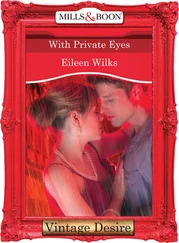“Jan Robbins,” she said, looking me over. Her nails were long but unpolished. “It’s best that we talk out here.”
“Sure,” I said, conscious of every wrinkle in my suit.
She waited until I’d backed away a bit before closing the front door behind her. “So why are you looking for Kathy?”
I considered how much to say. Had Kathy Moriarty’s sessions at the clinic been something she’d withheld from her sister? She’d talked openly to Joyce at the restaurant, but strangers were often seen as the safest repositories of confidences.
“It’s complicated,” I said. “It would really be best if I talked to your sister directly, Mrs. Robbins.”
“I’m sure it would, Doctor. I’d like to speak with her directly myself, but I haven’t heard from her in over a month.”
Before I could reply, she said, “Not that it’s the first time, given the way she lives- her career.”
“What career is that?”
“Journalism. Writing. She used to work for the Boston Globe and the Manchester Union Leader, but now she’s on her own. Freelancing. Trying to get her own books published- she actually had one out a few years ago. On pesticides- The Bad Earth ?”
I said nothing.
She smiled- with some satisfaction, I thought. “It wasn’t exactly a best-seller.”
“Is she from New England originally?”
“No, originally she’s from here- California. We both grew up in Fresno. But she went back east after college, said she considered the West Coast a cultural wasteland.”
She gave a quick look at the van and the toy bikes and frowned.
“Did she come back out on a writing project?” I said.
“I assume so. She never told me- never talked about her work at all. Confidential sources, of course.”
“You don’t have any idea what she was doing?”
“No, not in the least. We’re not- We’re very different. She didn’t spend much time here.”
She stopped, folded her arms across her chest. “Now that I think about it, how did you find out I was her sister?”
“She used you as a reference in order to cash an out-of-state check at a restaurant. The owner gave me your address.”
“Great,” she said. “Figures. Thank God the check didn’t bounce.”
“She have a problem with money?”
“Not with spending it. Look, I’ve really got to get inside. I’m sorry I can’t help you.”
She started to turn away.
I said, “So her being gone for a month doesn’t concern you?”
She pivoted sharply. “For her pesticide book, she traveled all over the country for more than a year. We never heard from her unless she ran short of cash. Instead of repaying what she’d borrowed, we got a signed copy of the book. My husband’s a corporate attorney, handles chemical accounts. You can imagine how much he appreciated that. A few years before that, she went to El Salvador- some sort of investigative thing, very cloak-and-dagger. Six months she was gone, not a call, not even a postcard. My mother was scared out of her mind and we never even saw a story come out of that one. So no, it doesn’t concern me. She’s out chasing another intrigue.”
“What kind of intrigue generally interests her?”
“Anything with a hint of conspiracy- she fancies herself an investigative reporter, still thinks the Kennedy assassination makes for fascinating dinner table conversation.”
Pause. Cartoon sounds, from inside the house. She gave a hard swipe at her hair. “This is ridiculous. I don’t even know you. I shouldn’t be talking to you… In the unlikely event I hear from her soon, I’ll tell her you want to talk to her. Where’s your office?”
“West side,” I said. “Do you have a recent address for her?”
She thought for a moment. “Sure, why not? If she can give out mine, I can give out hers.”
I pulled out a pen and, using my knee for a table, wrote on the back of a business card as she reeled off an address on Hilldale Avenue.
“That’s West Hollywood,” she said. “Closer to your part of town.”
Standing there, as if expecting me to answer some challenge.
I said, “Thanks. Sorry to bother you.”
“Sure,” she said, looking at the van again. “I know I sound hardhearted, but it’s just that I’ve tried for a long time to… help her. But she goes her own way no matter who-” She touched her mouth, as if forcefully hushing it. “We’re very different, that’s all. Vive la diffÉrence - you psychologists believe in that, right?”
I got back to Sussex Knoll by four-fifteen. Noel’s Celica was parked in front, along with a brown Mercedes two-seater with a DODGER BLUE sticker on the rear bumper and a cellular antenna on the rear deck.
Madeleine opened the door for me.
“How is she?”
She said, “Upstairs, monsieur doctor. She eats a little soup.”
“Has Mr. Sturgis called?”
“ Non. But others…” She cocked her head toward the front room and curled her lips in scorn. A conspiratorial gesture; I was an insider now.
She said, “ They wait.”
“For whom?”
She shrugged.
The two of us crossed the entry. When we got to the room, she veered and kept walking toward the back of the house.
Glenn Anger and a heavyset bald man in his fifties were sitting in the overstuffed chairs, legs crossed, looking clubby. Both wore dark blue sack suits, white shirts and pocket squares, foulard ties. Anger’s cravat was a pink mini-print, the other man’s yellow.
When I was a few feet away they stood and buttoned their jackets. The bald man was six feet tall, with a power-lifter’s build gone slightly to seed. His face was square and beefy above an eighteen-inch neck, his tan every bit as good as Anger’s and the one Don Ramp had sported before life had ground him pale. The little hair he had was wispy and colored an insipid brown-gray. Most of it ran around the sides of his head and looked as thin as a greasepaint smear. A tiny, teased puff topped his crown.
“Well,” said Anger, “I suppose your work here is at an end.” Looking grimly satisfied. To the bald man: “This is one of the detectives hired to search for Gina, Jim.”
“Not exactly,” I said. “My name is Alex Delaware. I’m Melissa’s psychologist.”
Anger looked baffled. Then peeved.
I said, “Mr. Sturgis- the detective- is a friend of mine. I referred the family to him. I happened to be with him when we went to your office.”
“I see. Well, that’s-”
“Sorry for not clarifying, but given the urgency at the time, it didn’t seem important.”
“Well,” said Anger, “I suppose it wasn’t.”
The bald man cleared his throat.
Anger said, “Doctor- it is Doctor Delaware?”
I nodded.
“Doctor, meet Jim Douse, Gina’s attorney.”
One side of Douse’s mouth smiled. He shook my hand, exposing a monogrammed cuff. His hand was big and padded and surprisingly rough- weekends spent away from the desk- and he curled his fingers in a way that prevented much contact between our palms. Reserving judgment on how friendly he wanted to get, or the special care very strong men sometimes exercise so as not to inflict pain.
He said, “Doctor,” in a smoker’s rasp. The tips of two cigars protruded from behind his pocket square. “Psychologist? I use them from time to time in court.”
I nodded, wondering if that was an icebreaker or a threat.
He said, “How’s our little girl doing?”
“Last time I saw her she was resting. I’m on my way up there to check.”
“Cliff Chickering told me the terrible news,” said Anger. “This morning, in church. Jim and I came by to see if there was anything we could do. What a stinking thing- I never actually believed it would come to this.”
Читать дальше












